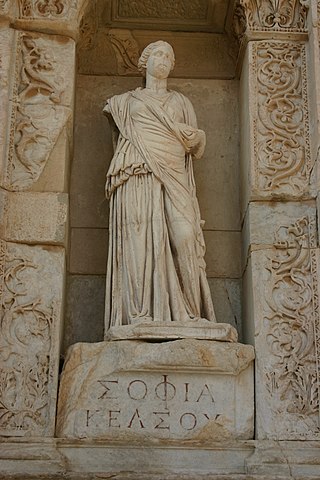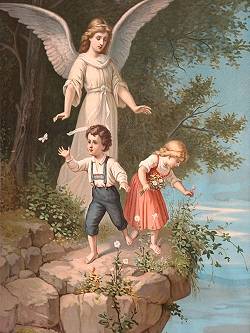Zitta is a female given name.
The name may originate from the Italian word zitta meaning young girl or from the Hungarian pet name of Felicita, from Latin Felicia. In Basque, the word means saint. In Greek, the word means' the hunter'.
Alexandra is a female given name of Greek origin. It is the first attested form of its variants, including Alexander. Etymologically, the name is a compound of the Greek verb ἀλέξειν and ἀνήρ. Thus it may be roughly translated as "defender of man" or "protector of man". The name Alexandra was one of the epithets given to the Greek goddess Hera and as such is usually taken to mean "one who comes to save warriors". The earliest attested form of the name is the Mycenaean Greek 𐀀𐀩𐀏𐀭𐀅𐀨, written in the Linear B syllabic script. Alexandra and its masculine equivalent, Alexander, are both common names in Greece as well as countries where Germanic, Romance, and Slavic languages are spoken.

Zita of Bourbon-Parma was the wife of Charles I, the last monarch of Austria-Hungary. As such, she was the last Empress of Austria and Queen of Hungary, in addition to other titles. She was declared Servant of God by Pope Benedict XVI.

Charles I was Emperor of Austria, King of Hungary, and the ruler of the other states of the Habsburg monarchy from November 1916 until the monarchy was abolished in April 1919. He was the last of the monarchs belonging to the House of Habsburg-Lorraine to rule over Austria-Hungary. The son of Archduke Otto of Austria and Princess Maria Josepha of Saxony, Charles became heir presumptive of Emperor Franz Joseph when his uncle Archduke Franz Ferdinand of Austria was assassinated in 1914. In 1911, he married Princess Zita of Bourbon-Parma.

Lucy is an English feminine given name derived from the Latin masculine given name Lucius with the meaning as of light. Alternative spellings are Luci, Luce, Lucie, Lucia, and Luzia.
Novak, Novák, or Nowak, is a surname and masculine given name, derived from the Slavic word for "new", which depending on the exact language and usage, translates as "novice", "new man", "newcomer", or "stranger".

Vladislav is a male given name of Slavic origin. Variations include Volodislav, Vlastislav and Vlaslav. In the Czech Republic, Slovakia and Croatia, the common variation is Ladislav.
Justina is an anglicised versions of the Latin name Iustina, feminine of Iustinus, a derivative of Iustus, meaning fair or just. For the masculine version of the name, see Justin.
Olga is a female name of Slavic origins. It is the equivalent of Helga, and derived from the Old Norse adjective heilagr. The name was brought to Eastern Europe in the 9th century, by the Scandinavian settlers who founded Kievan Rus'.

Sophia, also spelled Sofia, is a feminine given name, from Greek Σοφία, Sophía, "Wisdom". Other forms include Sophie, Sophy, and Sofie. The given name is first recorded in the beginning of the 4th century. It is a common female name in the Eastern Orthodox countries. It became very popular in the West beginning in the later 1990s and became one of the most popularly given girls' names in the Western world in the first decades of the 21st century.

Oscar or Oskar is a masculine given name of English and Irish origin.

Angela is a female given name. It is derived from the Greek word ángelos (ἄγγελος), meaning angel from Greek belief systems. In the United States, the name "Angela" was at its most popular between 1965 and 1979, when it was ranked among the top 10 names for girls. Between 1922 and 2021, in the United States, the name was ranked in the top 35 names for girls.

Barbara is a given name used in numerous languages. It is the feminine form of the Greek word barbaros meaning "stranger" or "foreign". In Roman Catholic and Greek Orthodox tradition, Saint Barbara was imprisoned in a tower by her father. She was then martyred by her father when she refused to renounce Christianity. According to legend, her father was then punished with death by lightning. As such, Saint Barbara is a protectress against fire and lightning. Early Christians occasionally referred to themselves as "barbarians" in opposition to the pagan Romans and Greeks. The story of Saint Barbara is said to have been an inspiration for the fairy tale Rapunzel and other European stories that feature a maiden in a tower.

Diana is a feminine given name of Latin and Greek origins, referring to the Roman goddess Diana. It came into use in the Anglosphere in the 1600s by classically educated parents as an English-language version of the French version of the name, Diane.

Anna is a feminine given name, the Latin form of the Greek: Ἄννα and the Hebrew name Hannah, meaning "favour" or "grace".
August is both a given name and surname developed from the Latin, Augustus. Derived from the Latin word augere, meaning "to increase", Augustus had the meaning "esteemed" or "venerable" and was a title given to Roman emperors.
Vera is a female given name of Slavic origin, and by folk etymology it has also been explained as Latin vera meaning "true". In Slavic languages, Vera means faith. The name Vera has been used in the English speaking world since the 19th century and was popular in the early 20th century. In Turkish Vera means piety.

Stanislav or Stanislaus is a given name of Slavic origin, meaning someone who achieves glory or fame. It is common in the Slavic countries of Central and Eastern Europe and Southeast Europe. The name has spread to many non-Slavic languages as well, such as French, German, and others.
Ludmila or Ludmilla is a female given name of Slavic origin. It consists of two elements: lud ("people") and mila. Because the initial L is mostly soft (palatalized), it is sometimes also transcribed Lyudmila, Lyudmyla or Ljudmila, and is written as Ľudmila or Ľudmyla in Slovak.
Monika is a female name in German, Scandinavian, Czech, Slovak, Polish, Slovene, Croatian, Estonian, Lithuanian, Latvian and Hungarian (Mónika) which can also be seen in India. It is a variation of Monica, stemming from the word "advisor" in Latin and "unique" in Greek.

Magdalena is the original version of the given name Magdalene, and is used in West Slavic, Hungarian, German, Lithuanian, Dutch, Swedish, Norwegian, Spanish, Georgian, and other languages.